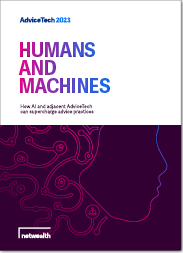Machines and humans have worked together for centuries and the new breed of supercomputers and AI are set to supercharge advice firms – staff productivity, business ingenuity, innovation and the client experience. It’s important for advice firms to take note.
Key takeaways:
- Humans and machines, not humans versus machines
- Artificial intelligence (AI) is everywhere already, we use it everyday in our work and play
- The entire advice process will be impacted by AI and its adjacent technologies
Over time, machines have augmented human abilities in ways that were previously unimaginable. The printing press in the 15th century, the industrial revolution across the 18th and 19th centuries, and the computer, mobile and internet age of the 20th century have all demonstrated this impact.
Computers have accelerated human-machine interaction, while the internet and the digital age have democratised knowledge, enabling instantaneous access to information and global connectivity.
The current wave holds almost unknown potential, with artificial intelligence (AI) and robotics pushing boundaries. AI can process and analyse vast amounts of data, supporting breakthroughs in various industries such as healthcare, transportation, and of course wealth management. Coupled with robotics, there is potential to enhance human capabilities in physically demanding tasks.
However, it’s important to recognise this wave is not just about machines – but should be a collaboration between humans and machines, where humans provide higher levels of creativity, empathy, teamwork and judgment, resulting in improved business ingenuity.
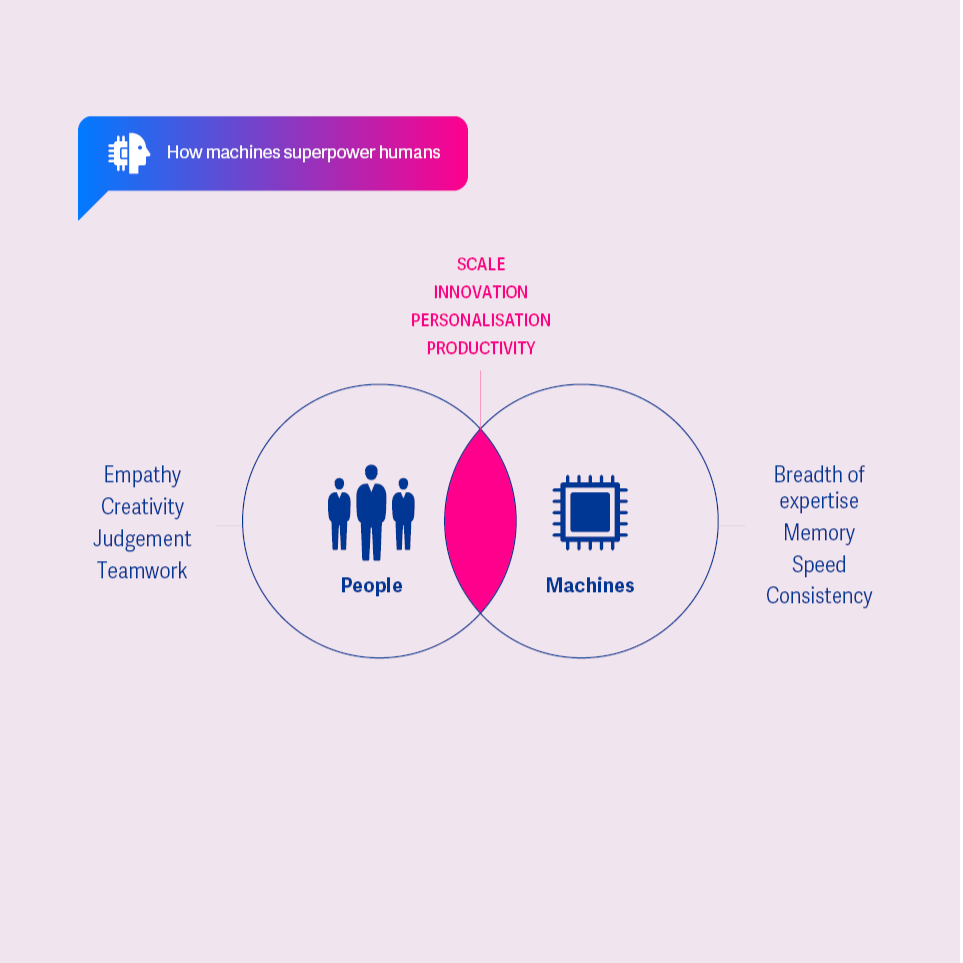
AI is already infiltrating human experiences without us necessarily realising.
AI in our messaging and typing programs automatically corrects spelling or suggests words to use. We’re receiving AI recommendations, such as products to buy on Amazon, or movies to watch on Netflix, or songs to listen to on Spotify based on what the AI has learned about our preferences. AI is curating our feeds to view on Facebook, Instagram and TikTok. We’re also starting to get on board with GenAI, where the AI creates content such as words, images, songs and even art.
AI is in business, today
AdviceTech providers are using and exploring AI as part of their back office. For example, they are using it to index documents uploaded, feeding them into the right parts of our workflow to help process and administer client information. They are using AI to extract data from these documents and directly file that information, removing manual intervention. For some, the AI is automatically redacting Tax File Numbers from documents for privacy and compliance purposes.
AI is also being used by call centre teams to help them respond quickly and consistently or as AI self-service chatbots. It’s also helping to keep client data secure from fraud and cyber attacks, and helping our distribution team identify which clients need more attention.
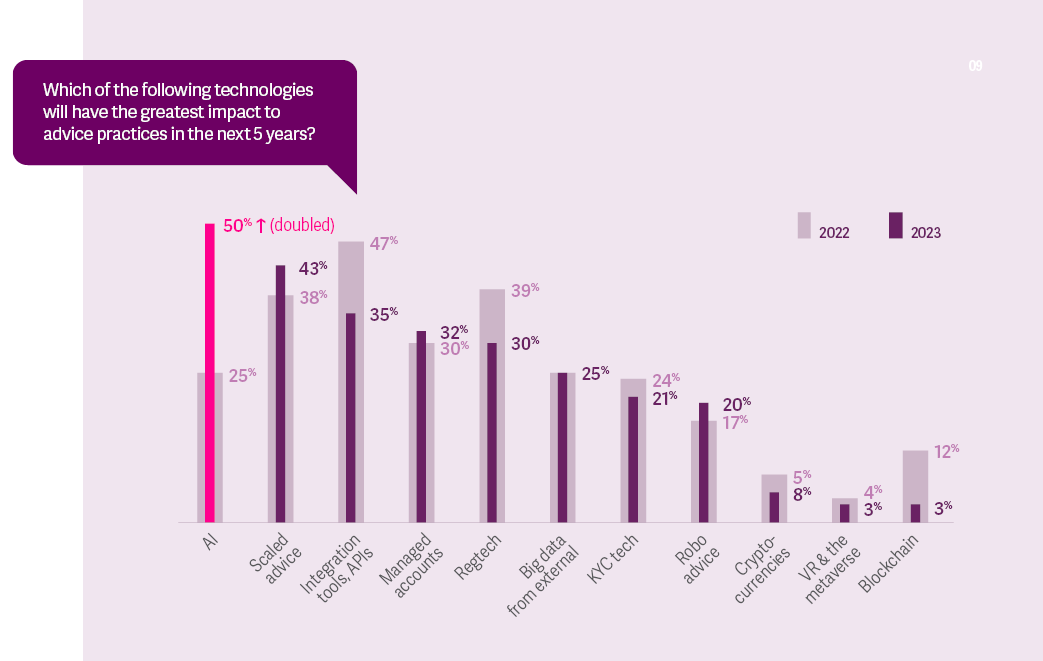
As AI infiltrates numerous industries, there are clear signs it will do the same for financial advice.
Based on our 2023 AdviceTech survey, financial advisers believe technology in general will lead to significant leaps in how they do business over the next five years. And what technology do they think will deliver on this promise? 50% of advice firms say AI – jumping from 25% the previous year – the largest increase of all AdviceTechs.
Other technologies set to disrupt the industry are those that often underpin AI development or are adjacent to it, such as system integration tools and APIs (35% of advice firms think these will have the greatest impact in the next five years), plus big data sets from external sources (25%).
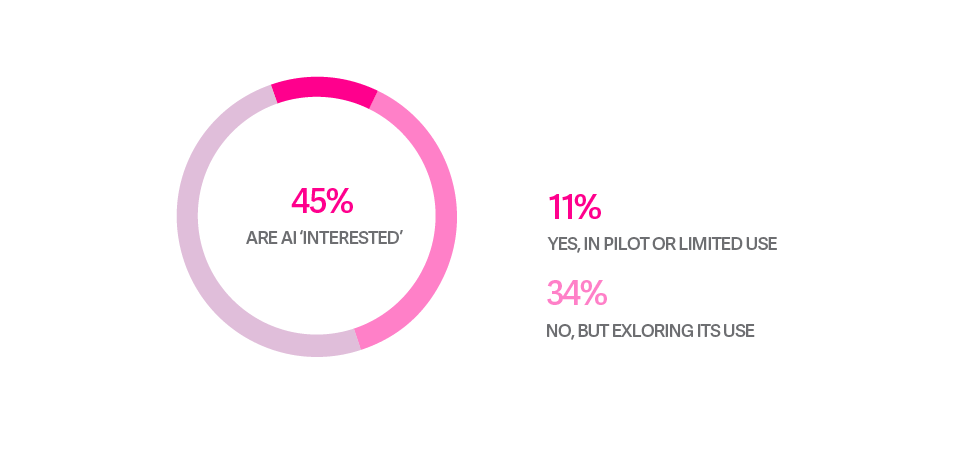
At this stage, AI is still not widely adopted by financial advice businesses. Only 11% of advice firms have piloted or are implementing AI in limited use cases, while one-third (34%) are exploring its potential. However, this suggests almost half of all advice firms are ‘AI interested’. Of the AI interested advice firms, 65% anticipate increasing their AI spend in the coming year.
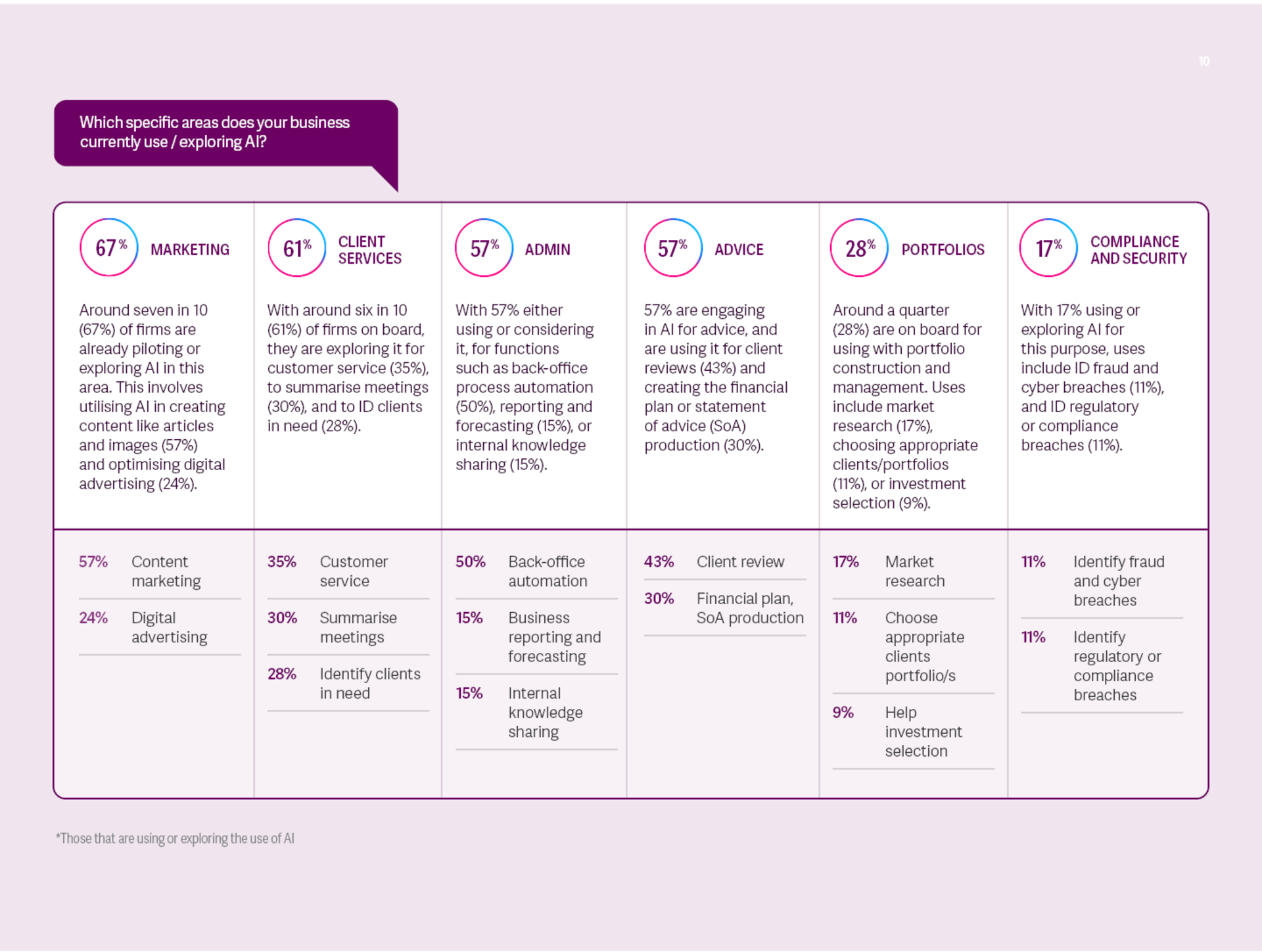
Many financial advice businesses recognise AI’s potential to evolve daily operations. The areas where ‘AI interested' advice businesses are piloting or exploring AI according to our 2023 AdviceTech survey are:
1. Marketing, with around six in 10 (67%) of firms already piloting or exploring AI in this area. This involves utilising AI in creating content like articles and images (57%) and optimising digital advertising (24%).
2. Client services, again with around six in 10 (61%) of firms on board. They are exploring it for customer service (35%), to summarise meetings (30%), and to identify clients in need (28%).
3. Administration, with 57% either using or considering it. This includes for functions such as back-office process automation (50%), reporting and forecasting (15%), or internal knowledge sharing (15%).
4. Advice, again with 57% exploring with AI. They are exploring it for client reviews (43%) and creating the financial plan or statement of advice (SoA) production (30%).
5. Portfolio construction and management, with 28% on board. Considerations include market research (17%), choosing appropriate clients/portfolios (11%), or investment selection (9%).
6. Compliance and security, with 17% using or exploring AI for this. Uses include in ID fraud & cyber breaches (11%), and ID regulatory or compliance breaches (11%).
What is clear is that there is a lot of hope in new technologies including AI to drive more productivity, efficiency, and value in the business and for clients.

If your business has started on its AI journey, or is planning to get on board, we think there are seven key steps that can help you make steady progress.
1. Set a vision and strategy – don’t just use technology for technology sake, identify clear business objectives before diving in.
2. Set the team up for success – make someone an AI champion, someone who is accountable for staying up to date with AI and tech, and for identifying some test cases.
3. Test, learn, repeat – Identify some short term, easy win projects. Perhaps start with ChatGPT Plus or and embedded copilot so you can understand capabilities and what can be achieved.
4. Build a data foundation – For those more ambitious, looking to create their own AI systems, data curation, governance and security is critical. Spend time understanding this as part of a wider AI or big date program.
5. Build a strong compliance framework – You should consider having a policy for use of AI and ChatGPT in the workplace, considering things like prohibiting inputting sensitive data, mandating accuracy checks on outputs, caution against potential biases, and evaluating risks like confidentiality, copyright, and legal concerns.
6. Stay up to date – Everything in AI is changing daily, so its critical to stay up to date. In our AdviceTech Report, we have some handy resources for you.
7. Keep it human – Do not assume AdviceTech and AI is the panacea. Technology requires human intervention. AI needs to be explainable to humans, by humans, and it needs to treat all humans equal, regardless of age or demography. Above all, your role as advice firms is to identify and the intersection between humans and machines and supercharge your advice firm – your staff productivity, business automation and your client experience.
Humans and machines - How AI can supercharge advice firms
Netwealth's 2023 AdviceTech report, Humans and Machines, provides a detailed examination of the role artificial intelligence (AI) and adjacent technologies will have for advice firms. We draw on extensive research to provide areas of focus, detailed examples and useful tips so you can deploy AI successfully into your practice today.
